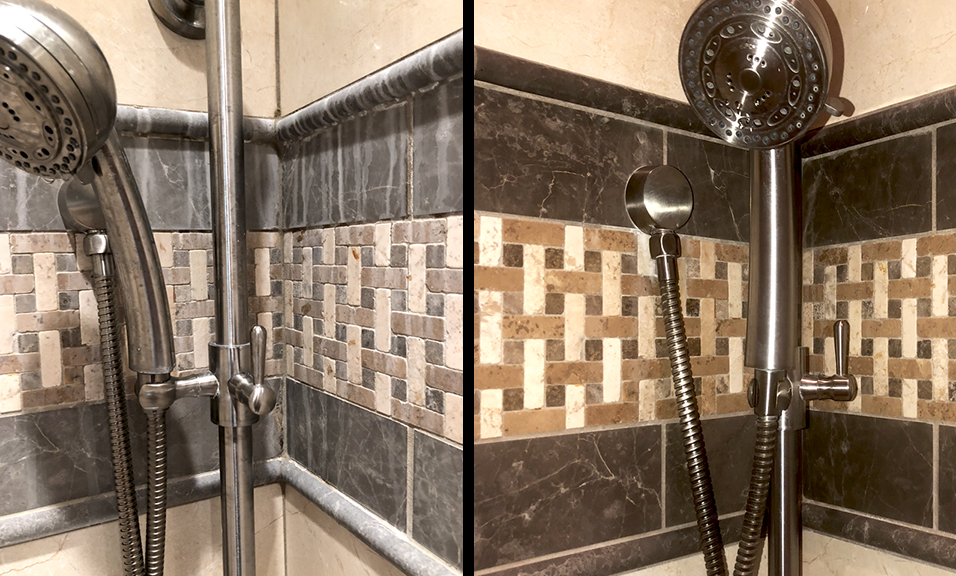|
Do's and Don'ts of Marble Care
One common mistake is using vinegar to clean mineral deposits from black marble showers. Though it might seem like a good idea, it leads to dullness and etching over time, damaging the marble’s polished finish. This issue is pervasive, as I've seen it countless times over my 30-year career. Consider a case where a cleaning company was tasked with cleaning a marble and porcelain shower stall in a luxurious home. They aimed to remove mildew from the grout lines on the shower’s walls. Unfortunately, they lacked proper knowledge and products, so they used a lime-away acid product for the grout—a mistake for natural stone. Instead, they should have used a chlorinated product specifically designed for mold stain removal on marble. While the polished porcelain tiles in the shower were impervious to the acid, the tumbled marble basket weave tiles used as a decorative accent were not. The acid etched the marble severely, necessitating professional restoration. This misstep led to a costly $1,500 repair bill to restore the marble’s finish and properly clean the grout. The correct process involved using the Majestic Mildew Stain Remover with a gentle nylon scrub brush. Due to the shower’s 12-foot ceiling, a step ladder and telescoping brush were necessary to reach the highest areas. The enclosed glass shower door exacerbated the humidity issue, leading to mold growth. This highlights the importance of regular use of an exhaust fan and post-shower squeegeeing. As Benjamin Franklin wisely said, “An ounce of prevention is worth a pound of cure.” At SCCPRO, we provide specialized products for maintaining natural stone, ceramic tile, terrazzo, and decorative concrete. Avoid using general-purpose cleaning agents that are not formulated for these surfaces to prevent costly repairs. Visit SCCPRO for all your stone care needs. |
